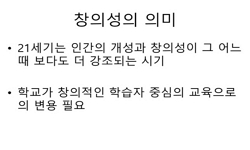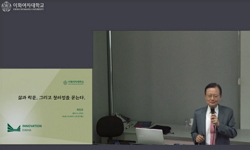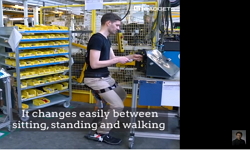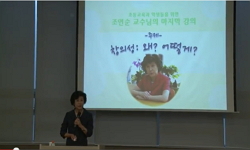- Ⅰ. 서론
- Ⅱ. 이론적 배경 및 연구가설
- Ⅲ. 연구 방법
- Ⅳ. 결과
- Ⅴ. 토의 및 결론
http://chineseinput.net/에서 pinyin(병음)방식으로 중국어를 변환할 수 있습니다.
변환된 중국어를 복사하여 사용하시면 됩니다.
- 中文 을 입력하시려면 zhongwen을 입력하시고 space를누르시면됩니다.
- 北京 을 입력하시려면 beijing을 입력하시고 space를 누르시면 됩니다.
https://www.riss.kr/link?id=A100323713
- 저자
- 발행기관
- 학술지명
- 권호사항
-
발행연도
2014
-
작성언어
Korean
- 주제어
-
KDC
324
-
등재정보
KCI우수등재
-
자료형태
학술저널
- 발행기관 URL
-
수록면
1761-1786(26쪽)
-
KCI 피인용횟수
15
- 제공처
- 소장기관
-
0
상세조회 -
0
다운로드
부가정보
목차 (Table of Contents)
- Ⅰ. 서론
- Ⅱ. 이론적 배경 및 연구가설
- Ⅲ. 연구 방법
- Ⅳ. 결과
- Ⅴ. 토의 및 결론
- 참고문헌
- Abstract
참고문헌 (Reference)
1 최재홍, "호텔 레스토랑 종사원이 지각하는 심리적 계약이행이 신뢰와 조직 동일시에 미치는 영향" 한국외식경영학회 16 (16): 89-109, 2013
2 신민희, "행복과 창의력의 관계: 행복한 사람이 더 창의적이다" 한국사회및성격심리학회 24 (24): 37-51, 2010
3 박지은, "조직시민행동에 대한 심리적 계약 위반의 효과: 기질적 정서의 조절효과를 중심으로" 한국산업및조직심리학회 25 (25): 589-606, 2012
4 이규만, "심리적 계약위반이 호텔 종사자의 반응에 미치는 효과" 한국외식경영학회 15 (15): 73-92, 2012
5 유민봉, "심리적 계약위반이 이직의도 및 동기부여에 미치는 영향: 직장가족주의 성향의 조절효과" 한국행정연구소 50 (50): 136-162, 2012
6 정영미, "심리적 계약위반이 근로의욕 및 직무태도에 미치는 영향 - 상사지원의 조절효과 -" 한국인적자원관리학회 18 (18): 111-128, 2011
7 이수광, "심리적 계약 위반이 조직몰입에 미치는 차별적 영향에 관한 연구 - 거래특성의 조절효과를 중심으로 -" 관광경영학회 15 (15): 89-106, 2011
8 손승연, "상호작용 공정성과 과업성과:리더인정 및 심리적 계약의 매개효과" 한국인사조직학회 21 (21): 229-260, 2013
9 이원행, "사회적 교환관계와 심리적 계약이조직유효성에 미치는 영향" 1-19, 2010
10 민지혜, "긍정적 정서는 우리의 판단을 자유롭게 한다 : 유발된 정서가 맥락효과에 미치는 영향에 관한 연구" 한국언론학회 54 (54): 293-314, 2010
1 최재홍, "호텔 레스토랑 종사원이 지각하는 심리적 계약이행이 신뢰와 조직 동일시에 미치는 영향" 한국외식경영학회 16 (16): 89-109, 2013
2 신민희, "행복과 창의력의 관계: 행복한 사람이 더 창의적이다" 한국사회및성격심리학회 24 (24): 37-51, 2010
3 박지은, "조직시민행동에 대한 심리적 계약 위반의 효과: 기질적 정서의 조절효과를 중심으로" 한국산업및조직심리학회 25 (25): 589-606, 2012
4 이규만, "심리적 계약위반이 호텔 종사자의 반응에 미치는 효과" 한국외식경영학회 15 (15): 73-92, 2012
5 유민봉, "심리적 계약위반이 이직의도 및 동기부여에 미치는 영향: 직장가족주의 성향의 조절효과" 한국행정연구소 50 (50): 136-162, 2012
6 정영미, "심리적 계약위반이 근로의욕 및 직무태도에 미치는 영향 - 상사지원의 조절효과 -" 한국인적자원관리학회 18 (18): 111-128, 2011
7 이수광, "심리적 계약 위반이 조직몰입에 미치는 차별적 영향에 관한 연구 - 거래특성의 조절효과를 중심으로 -" 관광경영학회 15 (15): 89-106, 2011
8 손승연, "상호작용 공정성과 과업성과:리더인정 및 심리적 계약의 매개효과" 한국인사조직학회 21 (21): 229-260, 2013
9 이원행, "사회적 교환관계와 심리적 계약이조직유효성에 미치는 영향" 1-19, 2010
10 민지혜, "긍정적 정서는 우리의 판단을 자유롭게 한다 : 유발된 정서가 맥락효과에 미치는 영향에 관한 연구" 한국언론학회 54 (54): 293-314, 2010
11 Khazanchi, S., "Who and what is fair matters : A multi-foci social exchange model of creativity" 32 (32): 86-106, 2011
12 George, J. M., "When openness to experience and conscientiousness are related to creative behavior : An interactional approach" 86 (86): 513-524, 2001
13 Morrison, E. W., "When employees feel betrayed : A model of how psychological contract violation develops" 22 (22): 226-256, 1997
14 George, J. M., "Understanding when bad moods foster creativity and good ones don’t : The role of context and clarity of feelings" 87 (87): 687-697, 2002
15 Conway, N., "Understanding psychological contracts at work : a critical evaluation of theory and research" Oxford University Press 2005
16 Argyris, C., "Understanding Organizational Behaviour" Dorsey 1962
17 Robinson, S. L., "Trust and breach of the psychological contract" 41 (41): 547-599, 1996
18 Shin, S. J., "Transformational leadership, conservation, and creativity : Evidence from Korea" 46 (46): 703-714, 2003
19 Adams, J. S., "Toward an understanding of inequity" 67 (67): 422-436, 1963
20 DeMeuse, K., "The tie that binds-has become very, very frayed" 13 (13): 203-213, 1990
21 Fredrickson, B. L., "The role of positive emotions in positive psychology" 56 (56): 218-226, 2001
22 Conway, N., "The reciprocal relationship between psychological contract fulfillment and employee performance and the moderating role of perceived organizational support and tenure" 85 (85): 277-299, 2012
23 Gouldner, A. W., "The norm of reciprocity: A preliminary statement" 25 (25): 161-178, 1960
24 Grant, A. M., "The necessity of others is the mother of invention : Intrinsic and prosocial motivations, perspective taking, and creativity" 54 (54): 73-96, 2011
25 Judge, T. A., "The job satisfaction-job performance relationship : A qualitative and quantitative review" 127 (127): 376-407, 2001
26 Witt, A., "The interactive effects of procedural justice and exchange ideology on supervisor-rated commitment" 22 (22): 505-515, 2001
27 Isen, A. M., "The influence of positive affect on the unusualness of word associations" 48 (48): 1413-1426, 1985
28 Zhao, H., "The impact of psychological contract breach on work-related outcomes : a meta-analysis" 60 (60): 647-680, 2007
29 Turnley, W. H., "The impact of Psychological contract fulfillment on the performance of in-role and organizational citizenship behaviors" 29 (29): 187-206, 2003
30 Vosburg, S. K., "The effects of positive and negative mood on divergent thinking performance" 11 (11): 165-172, 1998
31 Shalley C. E, "The effects of personal and contextual characteristics on creativity : where should we go from here" 30 (30): 933-958, 2004
32 Somech, A., "The effects of leadership style and team process on performance and innovation in functionally heterogeneous teams" 32 (32): 132-157, 2006
33 Orpen, C., "The effects of exchange ideology on the relationship between perceived organizational support and job performance" 134 (134): 407-408, 1994
34 Schminke, M., "The effect of ethical frameworks on perceptions of organizational justice" 40 (40): 1190-1208, 1997
35 Robinson, S. L., "The development of psychological contract breach and violation : A longitudinal study" 21 (21): 525-546, 2000
36 George, J. M., "The creative enterprise: Managing innovative organizations and people" Praeger 1-15, 2007
37 Prahalad, C. K., "The New Age of Innovation" McGraw-Hill 2008
38 Csikszentmihalyi, M., "The Nature of Creativity" Cambridge University Press 325-339, 1988
39 Kaufmann, G., "The International handbook on innovation" Elsevier Science 191-203, 2003
40 Montuori, A., "Social Creativity" Hampton Press 1999
41 GagnéM., "Self-determination theory and work motivation" 26 (26): 331-362, 2005
42 Rousseau, D. M., "Schema, promise and mutuality : the building blocks of the psychological contract" 74 (74): 511-541, 2001
43 Amabile, T, M., "Research in organizational behavior" JAI Press 123-167, 1988
44 Landy, F. J., "Psychology of Work Behavior" Brooks/Cole 1989
45 Rousseau, D. M., "Psychological contracts in organizations: Understanding written and unwritten agreements" Sage 1995
46 Chien, M. S., "Psychological contract framework on the linkage between developmental human resource configuration and role behavior" 24 (24): 1-14, 2013
47 Hui, C., "Psychological contract and organizational citizenship behavior in China : Exploring generalizability and instrumentality" 89 (89): 311-321, 2004
48 Pazy, A., "Predicting commitment : Exchange ideology, the structured interview and perceived organizational support" 59 (59): 339-359, 2010
49 Isen, A. M., "Positive affect facilitates creative problem solving" 52 (52): 1122-1131, 1987
50 Eisenberger, R., "Perceived organizational support" 71 (71): 500-507, 1986
51 Rousseau, D. M., "New hire perspectives of their own and their employer’s obligations : A study of psychological contracts" 11 (11): 389-400, 1989
52 Hair, Jr., J. F., "Multivariate data analysis" Pearson Prentice Hall 2006
53 Aiken, L. S., "Multiple regression:Testing and interpreting interactions" Sage 1991
54 Newell, H., "Muddle in the middle : organizational restructuring and middle management careers" 25 (25): 4-20, 1996
55 Amabile, T. M., "Motivation and creativity : Effects of motivational orientation on creative writers" 48 : 393-399, 1985
56 Parker, S. K., "Modeling the antecedents of proactive behavior at work" 91 (91): 636-652, 2006
57 Kearney, E., "Managing diversity and enhancing team outcomes : The promise of transformational leadership" 94 (94): 77-89, 2009
58 Liao, H., "Looking at both sides of the social exchange coin : A social cognitive perspective on the joint effects of relationship quality and differentiation on creativity" 53 (53): 1090-1109, 2010
59 Cabrera, A., "Knowledge-Sharing Dilemmas" 23 (23): 687-710, 2002
60 Williams, L. J., "Job satisfaction and organizational commitment as predictors of organizational citizenship and in-role behavior" 17 (17): 601-617, 1991
61 Guest, D. E., "Is the psychological contract worth taking seriously?" 19 (19): 649-664, 1998
62 Alge, B. J., "Information privacy in organizations : Empowering creative and extrarole performance" 91 (91): 221-232, 2006
63 Lee, C., "Inducements, contributions and fulfillment in the developing psychological contracts of newcomers" 50 (50): 201-226, 2011
64 Witt, A., "Income sufficiency as a predictor of job satisfaction and organizational commitment : Dispositional differences" 130 (130): 267-268, 1990
65 Sims, R. R., "Human resource management's role in clarifying the new psychological contract" 33 (33): 373-382, 1994
66 Ladd, D., "Helping coworkers and helping the organization : The role of support of perceptions, exchange ideology, and conscientiousness" 30 (30): 2028-2049, 2000
67 Coyle-Shapiro, J. A. M, "Handbook of Organizational Behavior" Sage 2008
68 Barney, J. B., "Firm resources and sustained competitive advantage" 17 (17): 99-120, 1991
69 Coyle-Shapiro, J. A. M., "Exchange relationships : examining psychological contracts and perceived organizational support" 90 (90): 774-781, 2005
70 Witt, A., "Exchange ideology as moderator of the relationships between importance of participation in decision making and job attitudes" 45 (45): 73-85, 1992
71 Witt, A., "Exchange ideology as a moderator of the procedural justicesatisfaction relationship" 133 (133): 97-103, 1993
72 Witt, A., "Exchange ideology as a moderator of job attitudes : Organizational citizenship behaviors relationships" 21 (21): 1490-1501, 1991
73 Blau, P. M., "Exchange and Power in Social Life" Wiley 1964
74 Witt, A., "Equal opportunity perceptions and job attitudes" 131 (131): 431-433, 1991
75 Yun, S., "Employee self-enhancement motives and job performance behaviors : Investigating the moderating effects of employee role ambiguity and managerial perceptions of employee commitment" 92 (92): 745-756, 2007
76 Whiting, S. W., "Effects of task performance, helping, voice and organizational loyalty on performance appraisal ratings" 93 (93): 125-139, 2008
77 Van Scotter, J., "Effects of task performance and contextual performance on systemic rewards" 85 (85): 526-535, 2000
78 George, J. M., "Dual tuning in a supportive context : Joint contributions of positive mood, negative mood, and supervisory behaviors to employee creativity" 50 (50): 605-622, 2007
79 Sternberg, R. J., "Creativity: From potential to realization" American Psychological Association 2004
80 Robinson, S. L., "Changing obligations and the psychological contract : a longitudinal study" 37 (37): 137-152, 1994
81 Sels, L., "Assessing the nature of psychological contracts : a validation of six dimensions" 25 (25): 461-488, 2004
82 Rousseau, D. M., "Assessing psychological contracts: Issues, alternatives, and types of measures" 19 (19): 679-695, 1998
83 Scott, B. A., "Are organizational justice effects bounded by individual differences? An examination of equity sensitivity, exchange ideology, and the Big Five" 32 (32): 290-325, 2007
84 Adams, J. S., "Advances in experimental social psychology" cademic Press 267-299, 1965
85 Wernerfelt, B., "A resource-based view of the firm" 5 (5): 171-180, 1984
86 Simon, H. A., "A behavioral model of rational choice" 69 (69): 99-118, 1955
87 Huseman, R., "A New Perspective on Equity Theory : The Equity Sensitivity Construct" 12 (12): 222-234, 1987
동일학술지(권/호) 다른 논문
-
- 한국경영학회
- 유동호(Dongho You)
- 2014
- KCI우수등재
-
변형된 기술수용모형(TAM)적용을 통한 증강현실 품질 평가에 관한 연구
- 한국경영학회
- 현용호(Yong-Ho Hyun)
- 2014
- KCI우수등재
-
- 한국경영학회
- 송치훈(Chihoon Song)
- 2014
- KCI우수등재
-
단일기간 재고 실험 연구 결과의 생산운영관리 교육에의 활용
- 한국경영학회
- 곽진경(Jin Kyung Kwak)
- 2014
- KCI우수등재
분석정보
인용정보 인용지수 설명보기
학술지 이력
| 연월일 | 이력구분 | 이력상세 | 등재구분 |
|---|---|---|---|
| 2022 | 평가예정 | 계속평가 신청대상 (등재유지) | |
| 2017-01-01 | 평가 | 우수등재학술지 선정 (계속평가) | |
| 2013-01-01 | 평가 | 등재학술지 유지 (등재유지) |  |
| 2010-01-01 | 평가 | 등재학술지 유지 (등재유지) |  |
| 2008-01-01 | 평가 | 등재 1차 FAIL (등재유지) |  |
| 2006-01-01 | 평가 | 등재학술지 유지 (등재유지) |  |
| 2004-01-01 | 평가 | 등재학술지 유지 (등재유지) |  |
| 2001-07-01 | 평가 | 등재학술지 선정 (등재후보2차) |  |
| 1999-01-01 | 평가 | 등재후보학술지 선정 (신규평가) |  |
학술지 인용정보
| 기준연도 | WOS-KCI 통합IF(2년) | KCIF(2년) | KCIF(3년) |
|---|---|---|---|
| 2016 | 1.45 | 1.45 | 1.48 |
| KCIF(4년) | KCIF(5년) | 중심성지수(3년) | 즉시성지수 |
| 1.64 | 1.69 | 2.793 | 0.2 |






 DBpia
DBpia







